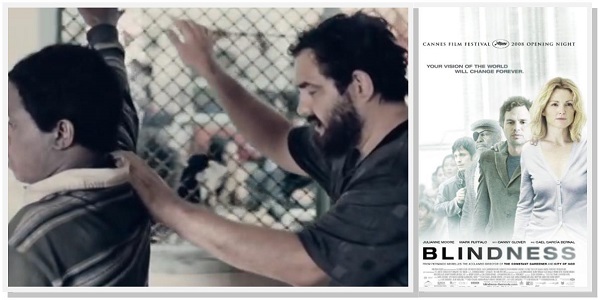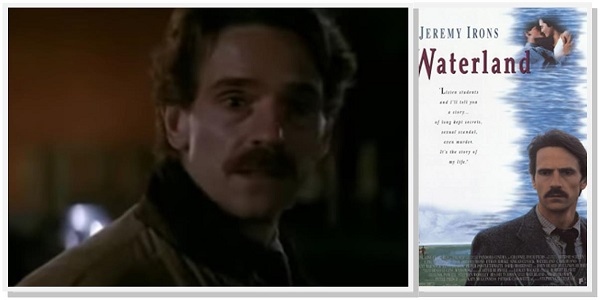Once in a while you come across a story with unnamed characters, making them just people or representatives of the human race. Blindness by Brazilian director Fernando Meirelles, an adaptation of Portuguese author José Saramago’s novel of the same name, is such a story.
The movie starts with a man suddenly going blind in broad daylight in an unnamed city and unspecified time (the absence of cell phones tell you, though, that it is sometime before the 2000s). Soon this blindness spreads like an epidemic with no explanation and engulfs everyone including an eye doctor (Mark Ruffalo). His wife (Julianne Moore) is the only one immune to the epidemic but pretends to be blind so as to stay close to her husband as he is put into a quarantine facility along with others affected by the epidemic. The facility eventually turns into a prison and those in charge of the food distribution start enslaving the inmates, stoking the embers of a rebellion. And it’s left to the one with sight to lead the herd out of captivity.
Blindness is a genre-defying work. If dystopian was a recognized genre of its own, it could fit into that slot. But for now, dystopian is deemed a sub-genre of sci-fi and there is too little science in Blindness to earn that badge. Elsewhere, it can be called a thriller, drama, disaster film, and mystery, and probably more. Since the unexplained nature of the epidemic featured in the story underlies all the action and remains so when the movie ends, calling it a mystery sounds about right.
Meirelles’ Blindness engages viewers more by its themes and metaphorical depictions of the exploitative nature of human species in crises rather than the familiar qualities of disaster or dystopian films. There is no real strong lead in the story – protagonist or antagonist – and the weaknesses of the plot are too obvious to make it believable. Dialogue is minimal and mostly lacking in impact. Yet one can readily see the dark side of humanity and frailty of human societies in a hypothetical disaster scenario. The movie offers philosophical commentary, spoken (in voiceover) and unspoken, on the deeper meaning of our ability to see things.
With a fairly interesting start and anticlimactic resolution, Blindness by Fernando Meirelles has some nudity and exploitative content like sexual violence against women.
Note: This reviewer has not read Saramago’s novel, which is the basis for this movie; hence no assessment of the movie in context of the book.




